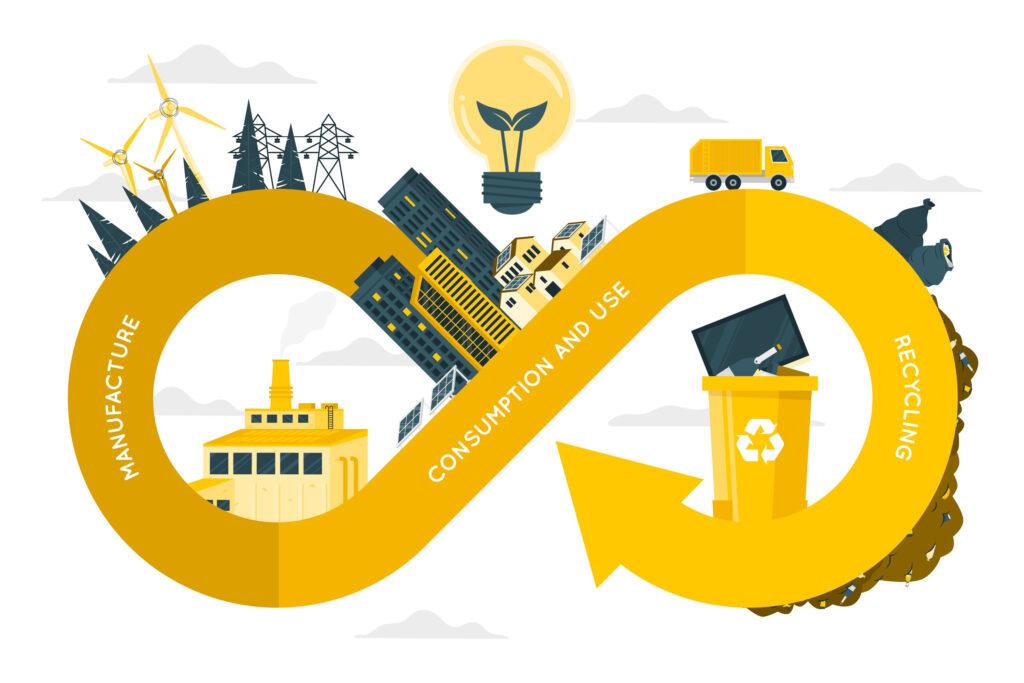The Role Of Industrial Suppliers In Sustainable Manufacturing
by Arnab Dey Business 23 April 2025

What role do industrial suppliers play in sustainable manufacturing?
When it comes to sustainable manufacturing practices, the role of industrial suppliers in supporting them is crucial. Hence, it is important to form strategic partnerships and focus more on innovation.
Basically, these aspects will help in reducing the overall environmental impact. In fact, emerging trends in the manufacturing industry show that the path to sustainability and efficiency is not only logical but a dire need.
Therefore, to get a better idea of how industrial suppliers play a role in sustainable manufacturing, read on.
Why The Shift To Sustainable Manufacturing Is Crucial?

It is not surprising that sustainable manufacturing is becoming increasingly vital. This is because most manufacturing-based industries seek to reduce environmental impact. Meanwhile, they are also intent on maintaining efficiency and productivity.
Basically, manufacturers will be able to minimize their carbon footprint by adopting eco-friendly practices. These include using energy-efficient production methods, waste reduction, and recyclable materials.
In fact, this shift benefits the environment and enhances long-term profitability. This is because it significantly reduces costs and also meets evolving regulatory standards.
Apart from that, companies across various sectors are adopting sustainable solutions to improve their respective operations and resource management.
In fact, industry leaders like Cruco Mill & Industrial Supply recognize the importance of integrating environmentally responsible practices into manufacturing processes.
Therefore, as a business owner, you will need to prioritize durable materials, energy-efficient equipment, and waste reduction strategies.
This way, you will be able to ensure that your business contributes to a more sustainable future. Also, you will be able to maintain the quality and reliability required in industrial applications.
How Does Sustainable Manufacturing Support Innovation And Efficiency?
Innovation is at the core of sustainable manufacturing. Basically, the latter is a driving force that enhances process efficiency and mitigates environmental impact.
In addition to that, industrial suppliers are essential to this dynamic. This is because they are able to offer the latest machinery and renewable materials. This enables manufacturers to reimagine their production lines.
Hence, due to these advancements, manufacturers are able to minimize waste and enhance economic outcomes. Also, they will be able to decrease their long-term production costs.
For example, the role of suppliers’ energy-efficient technologies and automation tools is crucial for the industry. Hence, with the help of these innovations, businesses will be able to significantly reduce operational costs. As a result, they can also free up resources for further innovation and market expansion.
Therefore, you must focus on integrating supplier-driven technology. This will create a win-win scenario that will streamline your operations and will also solidify your company’s standing in the marketplace.
What Is The Economic Impact Of Sustainable Manufacturing Practices?
The decision to pursue sustainable practices holds substantial economic promise for businesses. Apart from that, reduced operational expenses and access to eco-conscious markets constitute significant incentives for this shift.
Collaborations with industrial suppliers prioritizing environmental health greatly amplify these advantages.
In addition to that, aligning business practices with sustainable initiatives goes beyond ecological compliance. As a result, it ensures long-term profitability and resilience in an evolving world.
In addition, modern consumers increasingly support companies committed to sustainability. This underscores the potential revenue benefits for manufacturers adopting green practices.
Moreover, this trend heightens the importance of sustainable initiatives. As a result, it ends up creating further opportunities for growth and fostering consumer loyalty in an ever-competitive market. Hence, as a business owner, you will also need to stay aware of such changes.
What Major Trends Influence Supplier Strategies?
In general, suppliers in the industrial sector face a rapidly evolving landscape. Basically, they are influenced heavily by digital transformation and stringent environmental laws.
Apart from that, these trends necessitate the adoption of innovative technologies and sustainable materials. Here, both aspects support manufacturers dedicated to green objectives.
On the other hand, many suppliers are embracing these advancements. Hence, they are empowering manufacturers with tools to streamline operations, enhance product quality, and ensure regulatory compliance.
Therefore, as industries move ahead, you will need to stay informed and proactive regarding these trends. This will prove really helpful for your business when it comes to competitive positioning and sustainability.
How Do These Changes Align With Global Sustainability Goals?

Alignment with global sustainability goals is a driving force shaping both supplier practices and manufacturer expectations.
This alignment is crucial to meeting international regulations and fulfilling the consumer appetite for environmentally sound products.
Apart from that, industrial suppliers provide the essential components and materials that make sustainable production possible. This helps to support manufacturers in the long run.
Beyond compliance, a commitment to these goals fosters a positive corporate image, enhancing reputations and lucrative market shares.
Companies actively incorporating these sustainability goals into their operations benefit from increased brand loyalty and consumer trust.
How To Integrate Sustainability into Manufacturing? – Steps To Follow
The following are the major ways through which you will be able to integrate sustainable practices into your manufacturing business:
- Assess current supply chain practices for sustainability to identify potential areas for improvement.
- Engage with industrial suppliers to procure eco-friendly materials and technologies that reduce environmental footprints.
- Implement energy-efficient technologies and revamped processes to reduce overall energy consumption and waste.
- Regularly review and update practices, integrating new sustainable innovations to stay ahead of industry advancements.
Ensure Collaborative Efforts To Drive Change
Overall, sustainable manufacturing is the result of collaboration between suppliers and manufacturers. Hence, such partnerships involve exchanging knowledge and investment in research and development.
Moreover, you will need to ensure a unified commitment to implementing sustainable practices.
Therefore, if businesses work in concert, they will have the power to drive transformative changes within the industry, paving the way for a more sustainable future.
In fact, as more companies recognize the economic and ethical merits of sustainability, the role of industrial suppliers becomes increasingly critical.
Together, suppliers and manufacturers can meet today’s environmentally savvy consumers’ demands and ensure a cleaner, more efficient industry for generations to come.
Do you have more suggestions on how industrial suppliers can bring sustainable changes in manufacturing? Consider sharing your ideas and opinions in the comments section below.
Read Also:



































































































